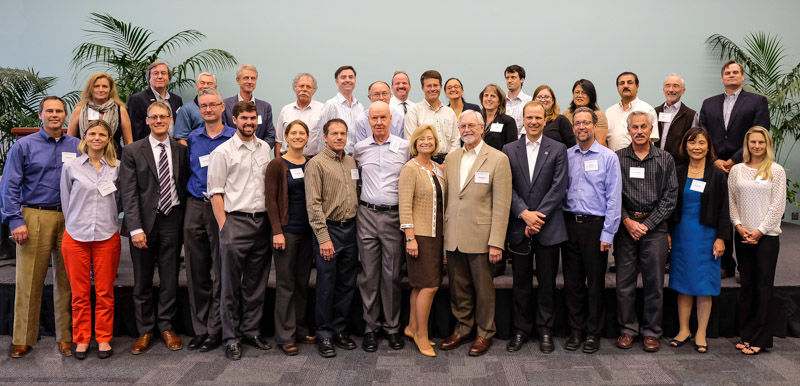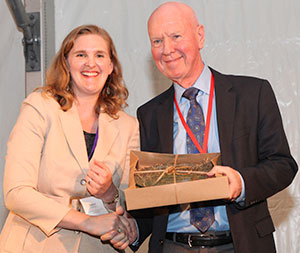Combatting Climate Change
Global climate disruption is impacting the planet in ways never experienced in human history. Warmer temperatures are contributing to changing weather patterns that cause more intense storms and heavier rainfall in some places, while elsewhere drought is parching the land. Glaciers are melting at an accelerated rate and oceans are rising.
The overwhelming scientific consensus is that climate change is being driven by the release of carbon dioxide into the atmosphere, primarily from the burning of fossil fuels.
The University of California has responded to this growing environmental crisis with direct action aimed at ending its reliance on fossil fuels. In November 2013, President Janet Napolitano announced the Carbon Neutrality Initiative, which commits UC to emitting net zero greenhouse gases from its buildings and vehicle fleet by 2025, something no other major university system has done.
The initiative builds on UC's pioneering work on climate research and furthers its leadership on sustainable business practices. UC is improving its energy efficiency, developing new sources of renewable energy and enacting a range of related strategies to cut carbon emissions.
UCSB and Institute Involvement

In October, the Institute for Energy Efficiency hosted a workshop at UC Santa Barbara that brought together researchers and sustainability officers from UC campuses, the Division of Agriculture and Natural Resources, and the UC-affiliated national laboratories at Berkeley, Livermore and Los Alamos. Their discussions formed the basis for recommendations on applied research priorities for the Carbon Neutrality Initiative.
Institute Executive Director David Auston and UC San Diego’s Sandra Brown chair the UC Global Climate Leadership Council’s Applied Research Working Group, which UC President Janet Napolitano charged with making recommendations on how UC’s scientific and operational innovations can help the university become carbon neutral.
Auston also was the co-organizer of a first-of-its-kind meeting between power providers, water utilities, regulators and researchers from across the western United States who looked at how to better manage and regulate electricity and water in ways that conserve both resources.
Other collaborations are in the works, including a conference in the fall that is expected to draw scientists and climate experts from UC and around the world. The summit is an outgrowth of the research workshop held last fall at UC Santa Barbara and will showcase climate solutions developed by UC that will help the state, nation and world aggressively reduce greenhouse gas emissions.

David Auston’s tireless work on this initiative has recently earned him the honor of being named the 2015 UC Sustainability Champion. Auston has fostered new kinds of collaborations between researchers and facilities managers, helping build connections that will be essential for UC to reach the initiative's ambitious goal of emitting zero-net greenhouse gases from operations by 2025.
“He has successfully built those bridges and, in so doing, put the Carbon Neutrality Initiative on the path to success,” Nava said Tuesday (July 21) during an awards ceremony at the California Higher Education Sustainability Conference hosted by San Francisco State University.
Napolitano has called carbon neutrality “a monumental objective” for UC. If it meets its 2025 target, UC would be the first major research university to accomplish it.
Read more about the Institute-hosted Carbon Neutral Workshop.